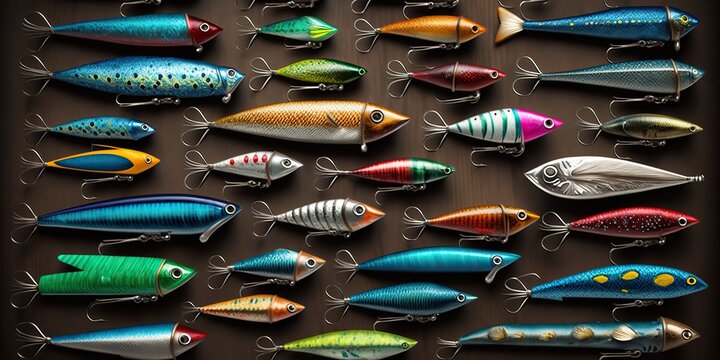
How Can You Cast Light Lures Far?
Tackling The WaterShare
It's all about achieving maximum casting distance when fishing with light lures!
Let's picture a situation where you're holding your fishing rod, equipped with the ideal lure for the day and blessed with favorable weather conditions. You cast your line, but the lure falls just three feet away from you. You try again with more power, hoping to increase the distance.
Despite your effort, the light lure still won't go beyond four feet. While this scenario is fictional, it's likely you've encountered similar challenges, as have I. This begs the question: is there a technique to cast light lures further than this short distance?
Attach weights or sinkers to your lure 💪
One way to increase the weight of your lure is to add sinkers or weights to it. This will help to increase the anchoring ability of the lure and enable it to sink faster, which will result in it traveling further when cast. A swivel can also be used to add weight if you don’t want to attach sinkers to your line. However, it’s important not to add too much weight, as it will make it harder to cast.
Verify the size of the rod 🎣
The length of the rod also plays a role in how far a light lure can be cast. A 7-foot or 6-foot rod is recommended for lightweight lures, as it is easier to manage the casting movement on slightly shorter rods. The spinning fishing rod by Ugly Stik is perfect for a 1/8 ounce lure. If you add some weight to your lightweight lure, an 8-foot fishing rod is recommended to reach a substantial distance. The best 8-foot fishing rod is Hurricane’s telescopic rod, thanks to its six sections of fiberglass blanks, making it portable and easy to manage.
Using the proper casting method 📏
The casting technique used can also improve the distance. Instead of hanging the lure about one foot from the rod before casting, it’s better to give it some space and let it drop another foot or two. The more line you let out, the more load you can give your rod, which will result in a greater distance. A smooth casting motion is also recommended, as it will allow you to take advantage of your rod’s curve or bend to cast the lure further.
Avoid rushing while casting ❌
Casting a line is not a competition to see who can do it the fastest. It's important to take your time and maintain control over your stance and grip on the reel. Check that the distance between the lure and the tip of your rod is around two to three feet apart. Once you feel comfortable with your gear, you can try using the overhead casting technique.
Hold the reel correctly ✅
Often overlooked or forgotten is the importance of proper grip and reel positioning. It's essential to ensure that the reel is pointing downward towards the ground before pulling back the rod. This straightforward technique can make a significant difference in the distance your lines and lures can travel.
Ensure you have a proper grip on the reel 👋
Another factor that affects the distance a lure can travel is the size of the fishing line. Thin and lighter lines cast better than thick and heavy lines, as the thinner the line, the lesser the drag when casting it. A heavy line will also have more recoil, which will pull the lure back towards you, resulting in a shorter distance. A lighter line will not require extra force to cast a heavyweight lure. Checking the material of the line before purchasing it is also important, as the coating of the line can affect how far the lure can be cast.
Work with the wind 🌬
Finally, getting the wind on your side can also help to cast a light lure further. Casting with the wind blowing towards you will increase the distance, as it will push the lure in the direction of your cast. By taking all these tips into consideration, anglers can increase their casting distance and have a more successful fishing experience.
Regular practice can lead to mastery 🙌
Even if you're not planning to fish, it's still worth practicing your casting skills. Practicing consistently can increase your confidence and skill level for when you do go fishing. Additionally, there may be certain times of the year when fishing isn't productive, and practicing during these times can help you master your techniques in preparation for the next fishing season.

